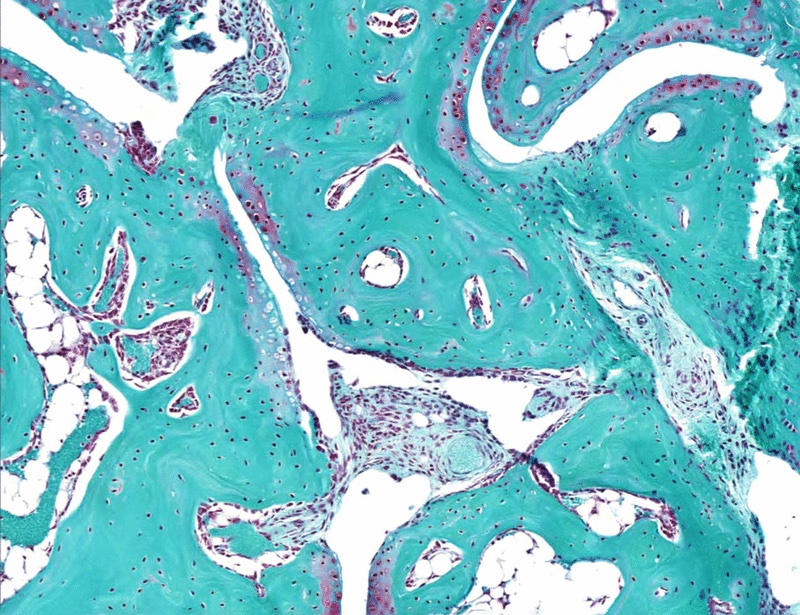In this paper the anti-TNF/IL6 bispecific nanobody is tested on the Tg197 arthritis model.
Published in Science Translational Medicine 2023 Feb;15(681):eabq4419. doi: 10.1126/scitranslmed.abq4419.
Rheumatoid arthritis (RA) is one of the most common autoimmune diseases affecting primarily the joints. Despite successful therapies including antibodies against tumor necrosis factor (TNF) and interleukin-6 (IL-6) receptor, only 20 to 30% of patients experience remission. We studied whether inhibiting both TNF and IL-6 would result in improved efficacy. Using backtranslation from single-cell RNA sequencing (scRNA-seq) data from individuals with RA, we hypothesized that TNF and IL-6 act synergistically on fibroblast-like synoviocytes (FLS) and T cells. Coculture of FLS from individuals with RA and T cells supported this hypothesis, revealing effects on both disease-driving pathways and biomarkers. Combining anti-TNF and anti–IL-6 antibodies in collagen-induced arthritis (CIA) mouse models resulted in sustained long-term remission, improved histology, and effects on bone remodeling pathways. These promising data initiated the development of an anti–TNF/IL-6 bispecific nanobody compound 1, with similar potencies against TNF and IL-6. We observed additive efficacy of compound 1 in a FLS/T cell coculture affecting arthritis and T helper 17 (TH17) pathways. This nanobody compound transcript signature inversely overlapped with described RA endotypes, indicating a potential efficacy in a broader patient population. In summary, we showed superiority of a bispecific anti–TNF/IL-6 nanobody compound or combination treatment over monospecific treatments in both in vitro and in vivo models. We anticipate improved efficacy in upcoming clinical studies.

